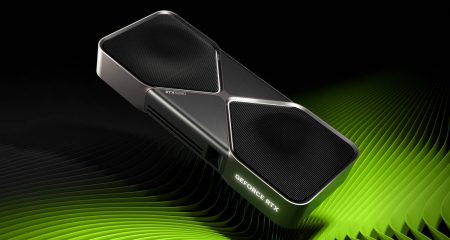
By Duncan McLeod
If you believe the claptrap coming out of the Apple camp in the past week, then you’ll accept as gospel that the era of the personal computer is over. Nothing could be further from the truth. The PC is alive and well; it’s just being reinvented.
Listening to Apple CEO Tim Cook’s keynote speech at the launch of the iPad 3 (sorry, the “new iPad”) last week, it became clear that the Apple hyperbole had reached new levels of absurdity.
Cook declared the PC era over. He couldn’t be more wrong, of course, and I’m having difficulty believing that Steve Jobs’s successor actually believes his own hype.
Sure, Apple has sold a lot of iPads since the tablet was introduced in 2010. By the end of last year, just 20 months after the first iPad hit the market in the US, the company had sold 55m of the things.
Online preorders for the new one have apparently been so high that Apple has already run out of stock (it hasn’t said how many units were available for preorder). Clearly, people are eager to play Angry Birds on the third-generation iPad’s higher-resolution display.
The success of the iPad and its sister product, the iPhone, has propelled Apple’s share price into the stratosphere. Since the beginning of the year (a little over two months), it’s added nearly 40%. The company has almost US$100bn in cash on its balance sheet and its market capitalisation is the highest of any US company, well north of $500bn and over $100bn more than energy giant Exxon Mobil’s, which it overtook just a few short months ago.
So, yes, Apple has been an extraordinary success story. It’s generated huge returns for shareholders, its profitability is the envy of corporate America, and some analysts have suggested it could even be the first $1 trillion market cap company. Impressive stuff.
But does Apple’s success mean it’s the end of the PC era? Not likely. Hundreds of millions of office workers around the world aren’t suddenly going to ditch their desktop and notebook PCs and switch to iPads. In many ways, the iPad is a complementary product to the PC rather than a competitor. It’s great for using in the lounge, reading electronic magazines at a coffee shop or even taking on short business trips if all that’s needed is e-mail, the Web and the ability to review documents. No one in their right mind will try to do a complex spreadsheet on an iPad or use one to run mission-critical business systems. A direct rival to the PC, with its rich functionality and powerful productivity software, it is not.
What Apple’s Cook didn’t mention at last week’s launch was that the PC itself is changing. Apple’s SA distributor went as far as to claim that “there has been almost no new innovation in the PC space that warrants upgrading a PC”. Really?
Some of the PC form factors being demonstrated at this year Consumer Electronics Show in Las Vegas showed the opposite to be true. Sure, the super-thin and light Ultrabooks on show were straight out of Apple’s playbook, but devices such as Lenovo’s Yoga — a notebook PC that swivels around to become a touch-screen Windows 8 tablet — and the new devices from companies such as Samsung and Asus had the gadget geeks salivating.
Windows 8, with its touch-friendly Metro user interface, looks to be a game changer, bringing the power of the PC to interesting new form factors.
The truth is the PC is changing, morphing into thinner and lighter designs with touch interfaces. What we are witnessing is not the end of the PC era, but its evolution into something new.
But then I suspect that Cook knows that only too well.
- Duncan McLeod is editor of TechCentral; this column is also published in Financial Mail
- Subscribe to our free daily newsletter
- Follow us on Twitter or on Google+ or on Facebook
- Visit our sister website, SportsCentral (still in beta)




